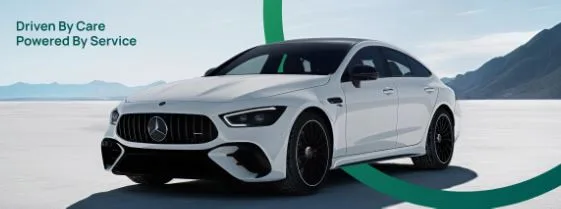How Much Does it Cost to Hire a PCO Car?
Nowadays, you will see many people talking about how much money PCO drivers make. However, very few know what goes on behind the scenes.
Life as a PCO driver is not just about hiring a car, offering rides to passengers, and earning a living. There’s so much more to it. For instance, you have to make sure there are no hidden fees, small mileage caps, etc., when choosing a car.
There are also insurance costs, deposits, ULEZ and congestion charges, and much more. If you are not careful while choosing a PCO car hire deal, you could end up with a package that costs more than what you earn.
In this article, we will look at different factors and explain how much it costs to hire a PCO car. Whether you are a new driver or an experienced one, this guide will show you what to expect, what to avoid, and how to keep most of what you earn.
Things that Determine the Cost of PCO Car Hire
- Weekly Rental
The average PCO vehicle hire cost ranges between £180 and £300 per week, depending on the car type.
For instance, choosing a standard plugin hybrid will cost around £180 and £220 per week because PHEVs are reliable and fuel-efficient.
If you choose an electric vehicle, the cost will jump to around £220 and £270 per week. However, EVs come with many perks. For instance, you can avoid petrol costs altogether and there are also no ULEZ charges (£12.50 per day), allowing you to save over £60 per week if you drive 5 days a week.
Now, if you want to choose a premium or larger vehicle to be able to drive for Uber Exec or serve group travellers, then the weekly rental cost will be around £270 to £350. These cars attract high paying customers, but they also come with higher upfront costs.
- Insurance (Usually Included)
Most PCO car hire companies include insurance in the weekly rental fee. The insurance is designed to cover PCO drivers, passengers, private hire vehicles, and third parties.
However, not all companies offer the same type of insurance. Some charge extra £25-£50 per week for offering young driver insurance if you are under 25. Similarly, there are excess reduction fees that you have to pay if you want to reduce the excess.
An excess is the amount that you have to pay out of your own pocket before the insurance kicks in. Drivers who don’t pay excess reduction fee may have to pay £1000 or more to obtain insurance if something goes wrong.
So, it’s important that you ask the following questions before signing the contract to keep the costs manageable:
- Are there any age-based fees?
- What’s the excess?
- Am I getting comprehensive insurance or just third-party insurance?
Knowing the answers to these questions will help you make an informed decision.
- Deposits and Upfront Payments
You might think hiring a PCO car is as simple as handing over your documents to the car provider and receiving keys. But the truth is that companies seek their own safety as well before handing over a £30,000 car to you.
Sometimes, this safety comes in the form of deposits and upfront payments ranging between £250 and £500. These deposits are often refundable but there are certain terms and conditions.
For instance, if the car comes back with damage or is returned late, you may not get the full amount back.
Some companies also require a week’s rental payment in advance. So, if you have limited funds, you need to be aware of this as well.
- Maintenance and Repairs
Just like insurance, good car hire companies include maintenance and repairs in the weekly rental fees as well. This typically includes routine servicing, MOT checks, oil changes, car body repair, etc.
However, not everything is covered. If the car breaks down because of your fault, you will be the one paying for repairs. The same goes for fines. If you receive a parking ticket or ULEZ penalties, the costs will be on you.
So, when hiring a PCO car, always make sure what’s included in your package by asking questions like:
- Who pays for routine servicing and maintenance?
- What if the car breaks down during a shift without me being at fault?
- Do you have an in-house team of mechanics or do you work with a third party? The latter often comes with delays.
If you don’t get satisfactory answers, consider other options.
- Fuel or Charging Costs
If you drive a petrol/diesel car, the fuel costs will be on you. Similarly, if you drive an EV, the charging fees or the cost of a home charging setup will be on you.
Normally, petrol/diesel cars cost between £80 and £120 a week in terms of fuel. The costs can easily increase if you do long shifts or are stuck in traffic.
Now, let’s talk about EVs. The electric cars may have higher weekly rental fees, but their charging costs are significantly lower – about £20 to £40 a week. If you have a charging setup at home or if you use free EV charging stations, you may save even more.
Remember that EVs take longer to charge. So, make sure you charge them during breaks or free time to avoid missing out on ride opportunities.
So, What’s the Total Weekly Cost?
Let’s say your weekly rental fee is £250 with zero ULEZ charges and insurance & maintenance included. Now, suppose your weekly charging costs are £40. Your overall weekly costs will be £290.
This means you will have to earn at least £290 just to cover your weekly costs. Most drivers make between £700 to £1000 per week. So, you can still make profits if you manage your time wisely and operate in areas with high demand.
Conclusion
If you want to drive for Uber, Bolt, or some other ride-hailing platform but don’t have the right car, then you can get one through PCO car hire. However, when choosing a package, ask the right questions and make sure you know the costs thoroughly. This will prevent many headaches while making your PCO journey as smooth as possible.





